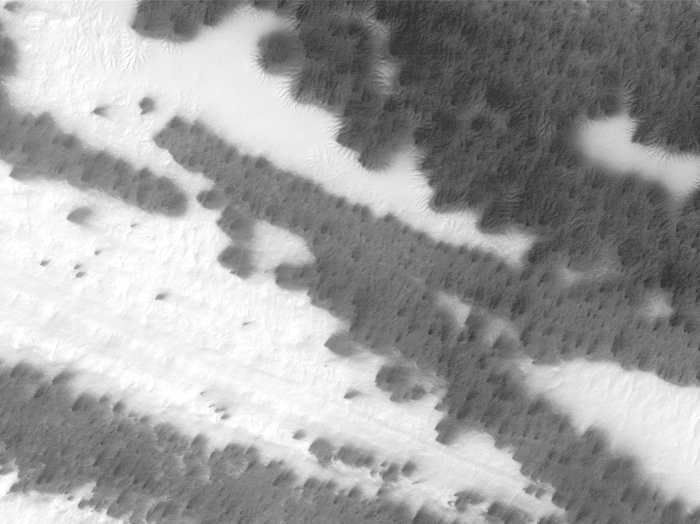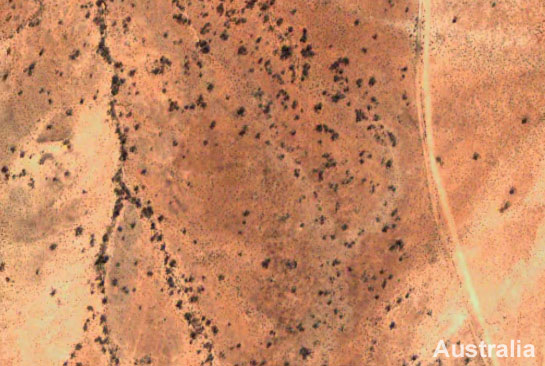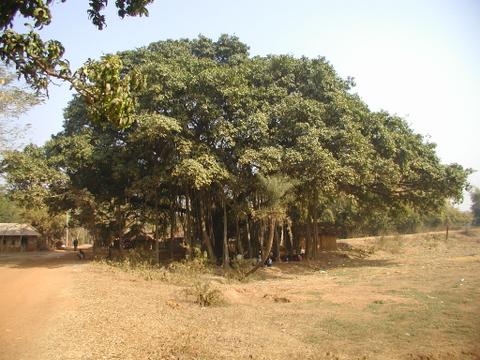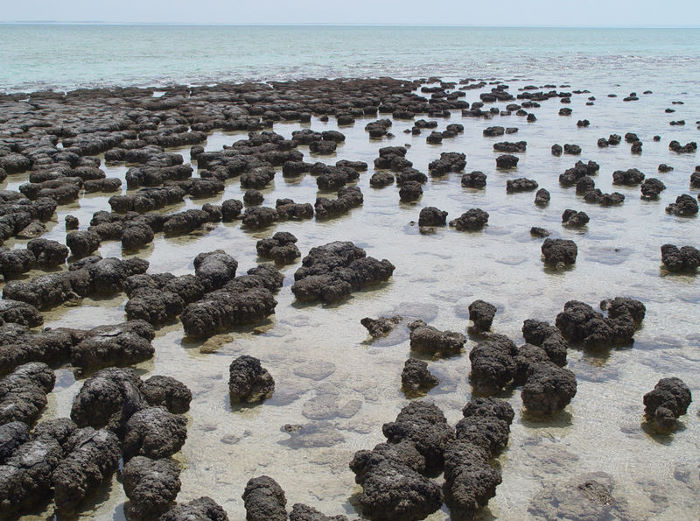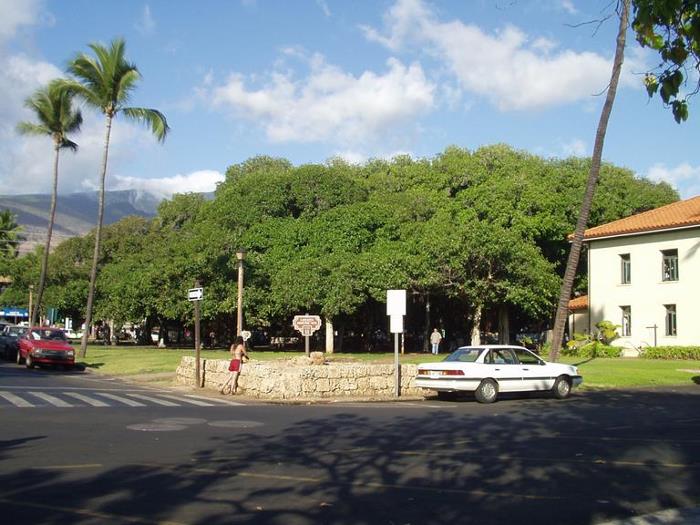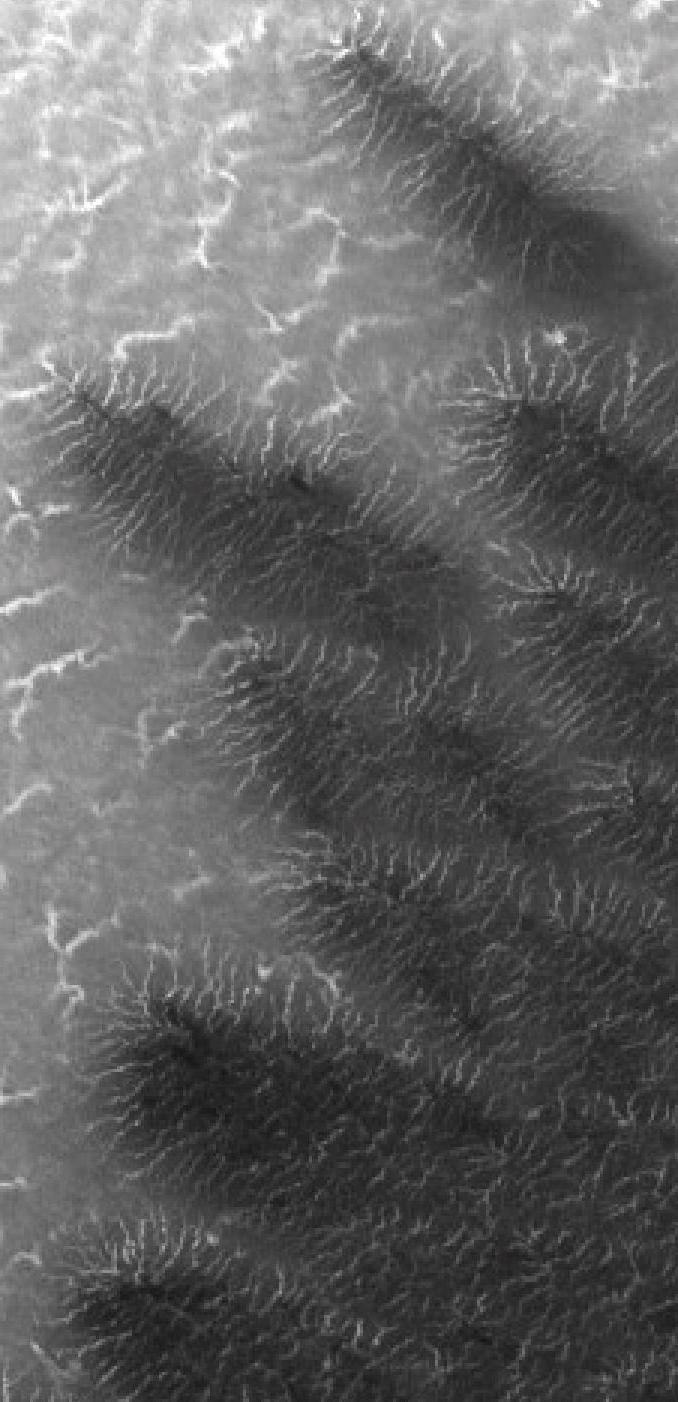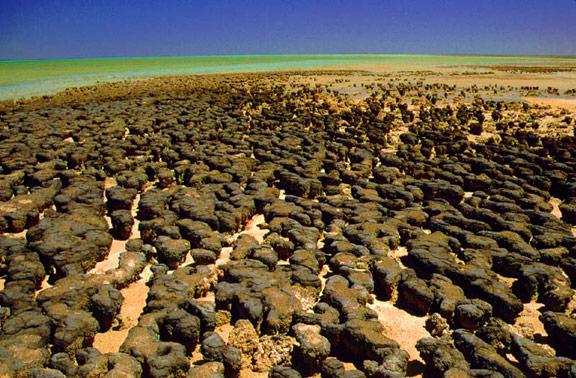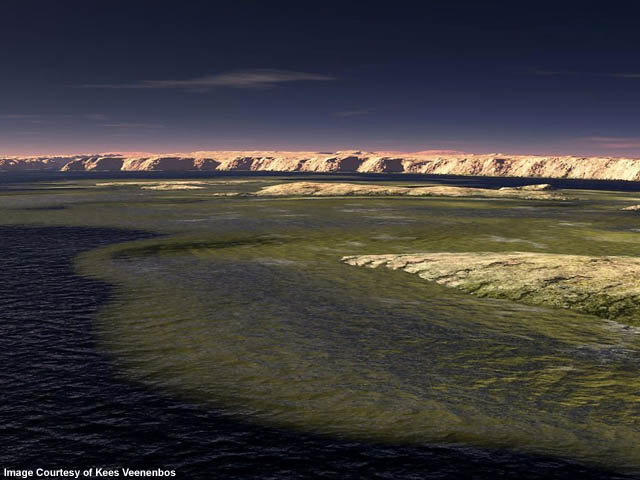|
The Enigmas on Mars |
|||||
|
The Case for the Trees .
The Blue Bird Files
What is this?
Originally posted by blue bird on 7-4-2007(ID:3097743) *** photo taken by MOC (Mars Orbiter Camera), a satellite for photographical mapping of Mars that, at latitude -82.02°, longitude 284.38° (near to the Martian south pole) has filmed something totally incredible, but still neglected: it's some form of vegetation on Mars. Look for yourself!
Malin Space Systems Image; S0600607 Malin Space Systems Image; S0600607.gif
Mars Anomaly Research; Forest-Life-Biodiversity More Trees...
Pegasus
Report:
Trees on Mars?
MMM
Group;
Forest on Mars?
|
|||||
| Originally posted by blue bird on
April 7, 2007
at 15:40 GMT (ID:3097776)
Do you have any idea what it could be? This guy Elviro already compared it with desert area of Australia!? Desert of Australia:
Area on Mars:
|
|||||
| Posted by laiguana, on 8-4-2007 @
01:40 AM (ID:3098851)
Some of those images I would make
out to be shadows
of rock formations, however I am a bit intrigued by
the rest. I live around
plenty of sage brush, but that looks a bit larger
than the usual sage brush
around here, although I've seen them grow up to 10
feet wide and 6 feet
tall on occassion. If it were a lifeform it wouldn't
be a plant like that
on earth. I don't want to fuel the radical idea of
organic life existing
on Mars right now though, there must be another
explaination to determine
this. Has there been any attempts by NASA or other
scientific organizations
to explain these odd formations in these
photographs?
|
|||||
| Posted by blue bird, on April 8,
2007 at 06:40
GMT
(ID:3098930)
Was this crazy and brilliant and somewhat on eccentric side - this Percival LOWELL onto something with his theory of vegetation on Mars ( and canals... remember) and strange artificially looking glass 'tubes' and now - this new images of 'holes' on Mars. Strange is the fact that he, from his Observatory in flagstaff (Arizona), during his 8 last years of life, was in search for "planet x" - and was convinced there is a planet beyond Neptune - and years after ('30) Pluto was found. Seriously...dunno - 'forest' or not - this image resembled some kind of 'life'. It would be very helpful if we can determine what the sun angle was in time images were taken - that way would be easy to measure the height of this 'trees' !? Even Arthur C. CLARKE thinks it is some kind of vegetation : External Source Speaking from his home in Sri Lanka, Clarke informed the crowd that the images he'd downloaded from NASA's Web site showed something growing on the planet's surface. "I'm quite serious when I say I have a really good look at these new Mars images," Clarke said. "Something is actually moving and changing with the seasons that suggests, at least, vegetation." Clearly, Clarke is no wild
eccentric; he invented the
concept of satellite broadcasting and was knighted
by the Queen of England.
What caught his eye is a genuine enigma: a forest of
large round blobs
with branchlike structures that visibly expand and
shrink over the seasons,
which Clarke said looked like "banyan trees."
|
|||||
| Posted by blue bird, on April 8,
2007 at 06:21
GMT (ID:3098941)
quote:
Originally posted by
uberarcanist
Yes..... could that be some ancient STROMATOLITES ( found on Earth) responsible for producing oxygen !? "Prior to 2.4 billion years ago, the earth's atmosphere was rich in carbon dioxide. However, the Precambrian air lacked the oxygen that sustains the complex multicellular life that has evolved since the "Cambrian explosion" 540 million years ago. Stromatolites in the fossil record decline sharply in both diversity and number during the late Proterozoic eon, although they are present, but not common, in Paleozoic era strata. Today, stromatolites are quite uncommon in marine environments. As a result, they have become valuable "living fossils." Stromatolites on Earth;
Regarding oxygen: "While prokaryotic cyanobacteria themselves reproduce asexually through cell division, they were instrumental in priming the environment for the evolutionary development of more complex eukaryotic organisms. Cyanobacteria are thought to be largely responsible for increasing the amount of oxygen in the primeval earth's atmosphere through their continuing photosynthesis." "Cyanobacteria use water, carbon dioxide, and sunlight to create their food. The byproducts of this process are oxygen and calcium carbonate (lime). A layer of mucous often forms over mats of cyanobacterial cells. In modern microbial mats, debris from the surrounding habitat can become trapped within the mucous, which can be cemented together by the calcium carbonate to grow thin laminations of limestone. These laminations can accrete over time, resulting in the banded pattern common to stromatolites" |
|||||
| Posted by undo, on April 8, 2007
at 07:46 GMT (ID:3098970)
I found some forest type things too. :) like this one, which to me looked like a snow covered mountain, with meandering river, bordered by stands of pine trees: An Alpine Vacation...
The above picturesque scene reminds one of an Alpine Vacation Resort with trees, mountain peaks and snow covered hills. Low hanging clouds drift through the valley on both sides. This is a very interesting and fun picture taken from image M04-03228.gif Click on the image to remove highlighting color. - Spotted by Undo at ATS - Colorized by Zorgon Source image: Malin Space Systems - M0403228 |
|||||
| Originally posted by blue bird on
8-4-2007 @ 05:49
AM (ID:3099011)
Thank's Undo! :) And look at this; findings and speculation about the south pole of Mars ( one we are speaking about) : water !? Editor's Note:
|
|||||
| Originally posted by mikesingh on
8-4-2007 @ 06:28
AM (ID:3099053)
Bingo!! Beth, that pic is on your Alpine Vacation thread. Darn, this forest stuff has already been done to death on ATS!! ... |
|||||
| Posted by blue bird, on April 8,
2007 at 11:20
GMT (ID:3099342)
Mars 'tree';
Compare Mars "trees" with Earth trees... Are these living trees? Arthur C.
Clarke said --
The Banyan trees of Mars: Sir Arthur C. Clarke's minority view. "I'm now convinced that Mars is inhabited by a race of demented landscape gardeners," Sir Arthur C. Clarke announced recently. He claims that an image produced by the Mars Global Surveyor satellite shows "large areas of vegetation . . . like banyan trees." Most experts dismiss the idea. But Popular Science loves a free thinker, especially one as talented and charming as Sir Arthur. We questioned him in Sri Lanka via e-mail"... Rest of Interview and SOURCE: Popular Science Banyan tree (Ficus benghalensis). "Large-canopied tree. One planted
200 years ago in
the Calcutta Botanic Garden (India) has a crown of
average diameter over
430 feet."or 127 meters, more than 1 hectare. One in
Sri Lanka covers over
2 acres or 1 hectare - SOURCE
|
|||||
Posted by blue
bird, on April
8, 2007 at 12:55 GMT (ID:3099378)
Image source: http: Malin Space Systems: M0305635 |
|||||
| Posted by blue bird, on April 8, 2007
at 13:31 GMT
(ID:3099488)
I am going to repeat something from 1 page - I mentioned Stromatolites which were dominating the Precambrian era on Earth - some of them with biological activity (microorganisms). Scientist are saying that
Precambrian AIR LACKED OXYGEN
-which is essential (on Earth at least) for complex
organisms ----> such
complex life evolved during Cambrian era
('explosion') some 540 M years
ago.
"Stromatolites are sedimentary
structures formed by Cyano-bacteria and are the
oldest life form on earth,
dating back more than 3.5 billion years ago.
They were once responsible
for the production of Oxygen in our atmosphere,
enabling other life forms
to develop.
Stromatolites are now extremely rare and only found on a few places on earth." - Source Astrobiologists
who try to
track fossils back in time, hoping to find clues
to the origin of life,
often must end their pursuit at stromatolites.
These fossilized structures
are the earliest evidence for life on Earth. The
oldest stromatolites date
back 3.5 billion years. Although there is some
controversy about whether
these more ancient structures were produced by
microbes or by non-biological
processes, various lines of evidence suggest
they were indeed formed by
life.
|
|||||
|
.
View from the eastern basin to the entrance at the far left of the Valles Marineris |
|||||
| FAIR USE NOTICE: This page contains copyrighted material the use of which has not been specifically authorized by the copyright owner. Pegasus Research Consortium distributes this material without profit to those who have expressed a prior interest in receiving the included information for research and educational purposes. We believe this constitutes a fair use of any such copyrighted material as provided for in 17 U.S.C § 107. If you wish to use copyrighted material from this site for purposes of your own that go beyond fair use, you must obtain permission from the copyright owner. | |||||
|
|

